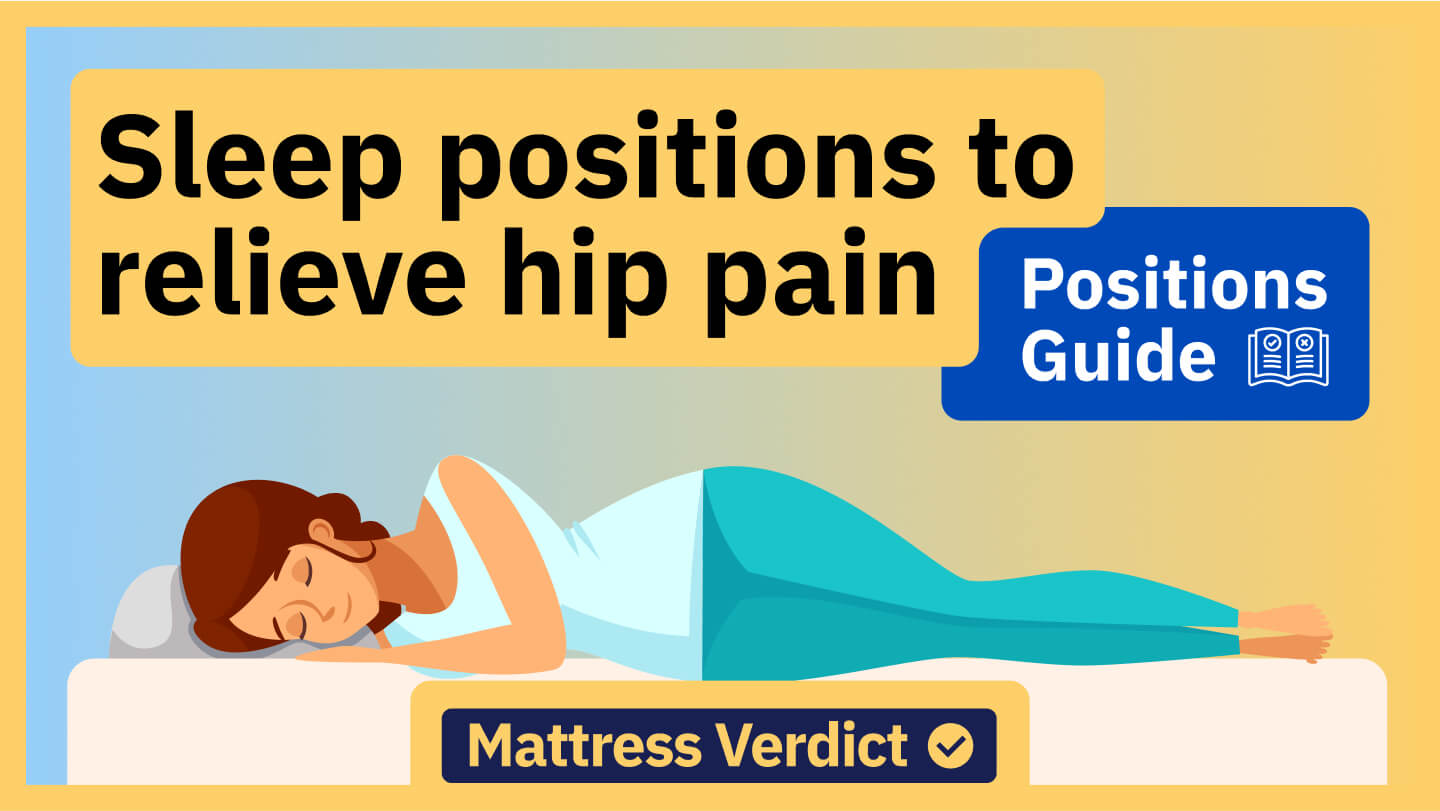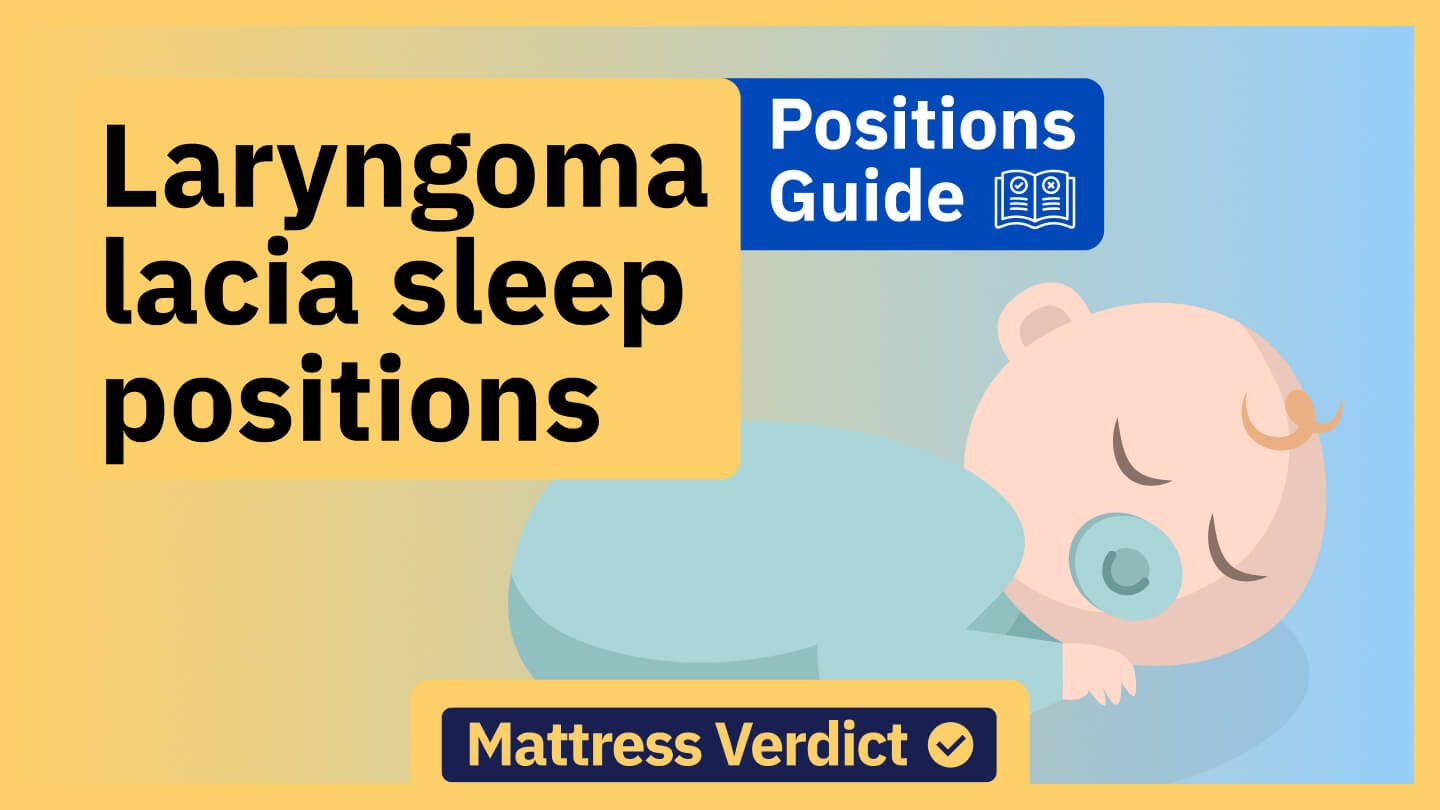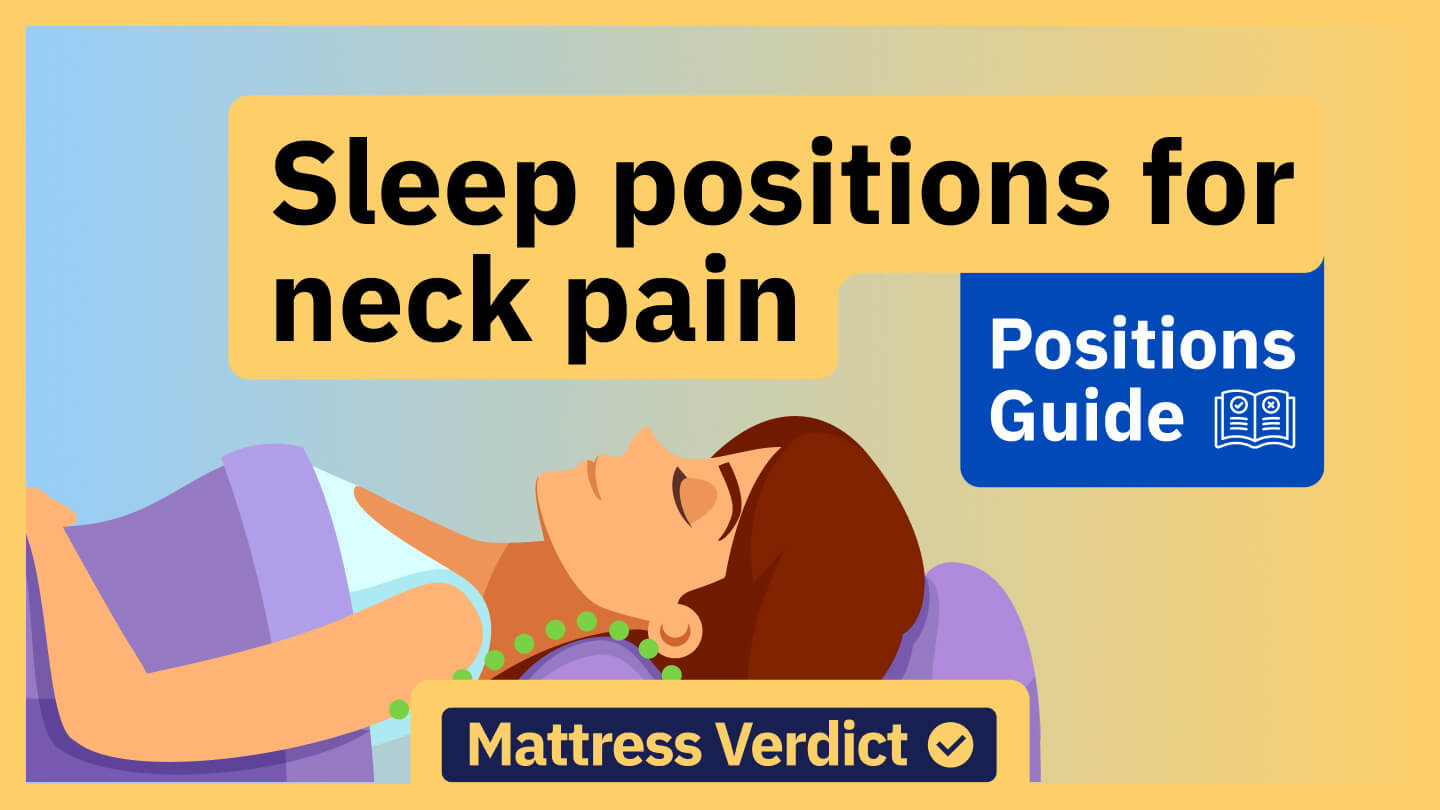

Do you wake up with a dry mouth or a sore throat? If yes, you may be among the many people who sleep with their mouths open. While this may not seem like a big deal to some people, sleeping with your mouth open can lead to health issues like gum disease, tooth decay, and sleep apnea. For those asking, “Why do I sleep with my mouth open?” Mattress Verdict answers questions about mouth breathing at night and how you can stop sleeping with your mouth open.
Key Takeaways
- Mouth breathing during sleep can have several adverse health effects
- There are effective ways to stop mouth breathing while sleeping/li>
- It’s important to see a doctor if you’re concerned about mouth breathing or if your symptoms do not improve
10 Effective Ways to Stop Sleeping With Your Mouth Open
You can adopt specific measures to ensure you sleep with your mouth closed at night. Here are some effective tips on how to keep your mouth closed while sleeping:
Change Your Sleeping Position
Some people's sleeping position may be why they sleep with their mouths open. You may find that sleeping in a supine position obstructs your airways and causes your mouth to open. Consider sleeping with your head slightly elevated to keep your airways open and prevent your tongue from falling back into your throat. Sleeping with your head raised is also one of the best sleeping positions for sleep apnea and sinus congestion.
Sleeping on your side with a pillow between your knees can also help to keep your spine aligned and prevent your mouth from opening. Some people may also find that sleeping on their stomach helps keep their mouth closed, but you should have good neck support if you want to sleep on your stomach. Read more about the best sleeping positions here.
If you are having problems with how you sleep, you may need a new mattress to help you adjust to a healthier position. Mattress Verdict helps you make a personalized mattress-buying decision using factors such as weight, sleeping position, mattress preferences, and bed-sharing. Take the Mattress Verdict quiz to find the best mattress type for you.
Try Breath Retraining
Sleeping with your mouth open could be a habit cultivated over time. Since habits are learned, they can be unlearned. Studies show you can retrain yourself to breathe nasally and improve respiratory function by practicing breathing retraining exercises before bed. According to this study, you can take the following steps to learn to start breathing through your nose during the day and night:
- Take a normal breath in and out through your nose
- Pinch your nose with your fingers to hold your breath
- As you hold your breath, move your body or gently nod your head up and down,
- Hold your breath for as long as you can – until you feel a strong air hunger;
- Let go of your nose and breathe through it as calmly as possible.
Repeat six times with a 30 to 60 seconds rest between each repetition.
Exercise Regularly
The benefits of exercise on your overall health cannot be overstated. Running or jogging increases your body's oxygen demand, causing you to breathe air through your nostrils reflexively. Stress is also a major cause of mouth breathing, and exercise releases endorphins that help manage stress. Consider doing yoga or meditation, as these practices help you focus on breathing while fighting stress.
Switch to a Healthier Diet
A healthy diet is necessary for your health. It helps you prevent allergies and sinus problems, which can cause you to sleep with your mouth open. By eating healthy, you can also control your weight, thereby decreasing the pressure on your lungs and sinuses and preventing mouth breathing when you sleep.
Avoid Eating Close to Bedtime
Eating close to bedtime can lead to acid reflux, where stomach acids back up into the esophagus. Acid reflux can lead to heartburn, indigestion, and a sour taste in the mouth. It can also irritate the throat and trigger a reflex that causes your mouth to open during sleep. So, you should avoid eating or drinking too much before bedtime.
Reduce Alcohol Intake
Taking alcohol helps you to relax and prepares you for sleep, but it can also irritate your airways, cause congestion and disrupt airflow through your nose. Alcohol also relaxes the muscles that control the soft palate and uvula (the fleshy tissue at the back of your throat), causing them to vibrate and leading to snoring. You may need to reduce your alcohol intake, especially before bedtime, to see if it prevents congestion and eases airflow.
Wash Your Nose to Clear Out Blockages
Mouth breathing may occur when the nostrils are blocked. Consider using a nasal wash to clear your nose of any obstructions or a saline spray to reduce inflammation that may prevent airflow. Use sprays sparingly as they could be habit-forming or cause some other side-effects.
Try Sleeping with a Mouth Guard
Mouth guards – plastic shields you put in your mouth before sleeping – can keep your jaw in a neutral position and prevent you from sleeping with your mouth open. They also prevent your teeth and jaw from grinding and clenching, preventing further damage. Consider speaking to your dentist about getting a custom-made mouth guard for a perfect fit.
Use a Chinstrap
A chinstrap is a simple device that wraps around your head and under your jaw to keep your jaw closed while you sleep. Chinstraps prevent your lower jaw from falling open and your tongue from falling back. By keeping your jaw in a neutral position, chinstraps make it easier to breathe through your nose. They are typically made from soft, comfortable materials and can be adjusted to fit your head and chin perfectly.
Keep Your Home Clean and Allergen-Free
Keeping your home clean and allergen-free can prevent you from sleeping with your mouth open by reducing the dust and allergens that can cause congestion. When your nose is congested, you’re more likely to breathe through your mouth. Dust and other allergens settle on surfaces and in the air, so regular cleaning is important. You should vacuum regularly, wash your bedding and curtains, and use an air purifier to remove allergens from your home.
See a Doctor
Some cases of sleeping with your mouth open may be due to an underlying health issue, so you may need to see a doctor about the condition if it fails to improve. Talk to the doctor about when you first noticed the issue and other symptoms you may be having. A doctor may prescribe drugs for allergies or recommend surgery for complications like nasal polyps or other issues preventing you from sleeping with your mouth closed.
Causes and Symptoms of Mouth Breathing at Night
A person may be breathing with their mouth at night for several reasons: These include:
Nasal Congestion Due to Allergies
When the nasal passages are blocked due to allergies, the body tries to compensate through mouth breathing. Since taking in oxygen is more difficult, the individual may also experience snoring and increased fatigue.
A Deviated Septum
A deviated septum is a condition where the septum (the cartilage that separates the two nostrils) leans to one side. It can make breathing through the nose difficult and lead to mouth breathing, especially at night when the body is trying to get more oxygen.
Enlarged Tonsils or Adenoids
The tonsils are lymph tissue on either side of the throat, while adenoids sit at the back of the nasal passage. They keep the body healthy against harmful bacteria or viruses we breathe in or swallow. When they become enlarged, they can press against the airways, making breathing difficult and causing mouth breathing at night.
Obstructive Sleep Apnea
Obstructive sleep apnea is a sleep disorder that leads to repeated episodes of breathing cessation during sleep. It occurs because the airways are blocked, usually by the soft tissue in the throat collapsing. This obstruction stops the flow of air and prevents breathing. In response, the brain signals the body to wake up, and breathe slightly, clearing the airway and allowing breathing to resume. This cycle can repeat multiple times through the night, interrupting sleep and leading to mouth breathing.
Inflamed Nasal Tissue
Inflammation of the nasal tissue (rhinitis) can make it difficult for air to pass through the nose, leading to mouth breathing. In addition, it can also cause nasal congestion, sneezing, and a runny nose, thus worsening mouth breathing.
Other factors that may contribute to mouth breathing include:
- Stress
- Dry air
- Pollution
- Medications
- Habit
Symptoms of mouth breathing include:
- Snoring
- Halitosis (bad breath)
- Brain fog
- Drool on pillows
- Sore throat
- Malocclusion (misalignment of the upper and lower teeth)
- Irritability and chronic fatigue
- Dark circles under the eyes
The Dangers of Sleeping with Your Mouth Open
Prolonged mouth breathing can lead to health complications, including:
Periodontal Disease
Mouth breathing can cause periodontal disease by allowing mouth bacteria to enter the gums more easily, causing infections. It also dries out the mouth, making growing bacteria easier. Mouth breathing, if not corrected, may also lead to gum inflammation, bleeding, and eventual bone loss.
Throat and Ear Infections
When you breathe through your mouth, the air dries the mucous membranes in the throat and ears, making it easier for bacteria and viruses to take hold and cause infections. In the throat, this can lead to tonsillitis or strep throat. It can also lead to ear infections like otitis media, an infection of the middle ear.
Sleep Apnea
Mouth breathing can cause or worsen sleep apnea by relaxing the muscles in the back of the throat and narrowing the airways. This action can cause snoring and episodic pauses in breathing, which characterize sleep apnea.
Facial Abnormalities
Mouth breathing can cause the face to grow abnormally due to long-face syndrome. This abnormal growth occurs because the face develops in response to the tongue’s position. With mouth breathing, the tongue is positioned in front of the tongue rather than against the roof of the mouth. This causes the bones of the face to grow longer than normal, giving it an abnormally narrow appearance.
Lower Immune Function
Mouth breathing causes you to take in less oxygen than your body needs, causing stress and inflammation, which can weaken your immune system.
Other health problems that may arise from mouth breathing include:
- Asthma
- Tooth decay
- Oral and respiratory infections
- Sleep disruption
- Speech impediment in kids
- Increased anxiety or panic attacks
When to Consult Your Healthcare Provider
Speaking with a healthcare provider may be necessary if you consistently sleep with your mouth open or are experiencing symptoms like daytime fatigue, snoring, brain fog, or dark circles under your eyes. Sleeping with your mouth open can also cause a sore throat that won’t go away, bad breath, or cracked lips. You should schedule an appointment with a doctor to discuss your situation if you notice any of these symptoms.
Getting the right mattress is one of the factors necessary for a restful and refreshing sleep. An unsuitable mattress can contribute to discomfort and sleep-related problems. Check out Mattress Verdict’s catalog of the top mattress brands to find one that suits your needs, body size, and budget.
Frequently Asked Questions
Does mouth breathing at night alter your face structure?
Yes, it can. Mouth breathing at night can alter your face structure because jaw muscles, usually relaxed during sleep, are tensed by the air flowing through the mouth. The tension over time can affect the structure of your face.
Is mouth taping safe?
Mouth taping is a technique that involves placing tape over the mouth to encourage nose breathing. This technique is safe if the tape is not too tight and you do not have a sleeping disorder like apnea. Otherwise, it would help if you spoke with a doctor to learn how to sleep with your mouth closed without tape.
Do mouth breathers age more?
Mouth breathers may age more as mouth breathing dries out the tissues in the mouth and throat, causing the skin to lose its elasticity and sag over time. Mouth breathing can also lead to wrinkles around the mouth and eyes, giving an aged appearance.
How long does it take to become a nose breather?
How long it takes to become a mouth breather depends on the individual and the cause of their mouth breathing. For example, someone with a deviated septum or allergies may take longer to become a nose breather than someone with poor breathing habits. Generally, transitioning from a mouth to a nose breather can take anywhere from a few weeks to a few months.
What is the best sleeping position for laryngomalacia?
Laryngomalacia is a condition caused by softening and collapse of the larynx tissues, which blocks the airways and causes breathing difficulties. It is most common in infants, though it can affect people of all ages. One of the best laryngomalacia sleep positions is back sleeping unless otherwise recommended by a doctor.
How can I unblock my nose naturally before sleep?
Some steps you can take to unblock your nose naturally before sleep include:
- Taking a hot shower or bath before bed to loosen the mucus in your nose
- Using a neti pot or nasal irrigation system to rinse out your nasal passages
- Trying a nasal decongestant like a nasal spray or vapor rub
- Treat allergies or see a doctor to prescribe anti-allergy medications
- Keeping your bedroom cool and ventilated so you can breathe better
What are the best sleeping positions to stop coughing?
Lying in a supine position with your head slightly elevated can help to stop coughing. This position helps to open up the airways and reduce coughing. The fetal position is also one of the best sleep positions to stop coughing. Sleeping on your side with your legs pulled up towards your chest can help reduce throat and chest congestion that may be causing cough.




